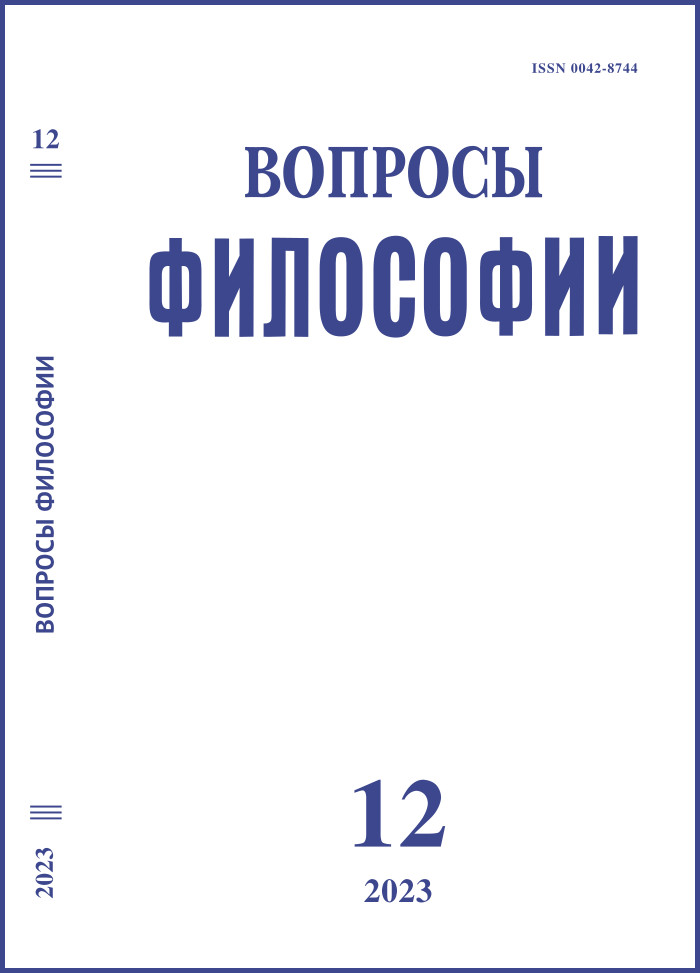N.I. Zhinkin: from Phenomenology towards Philosophy of Language
DOI:
https://doi.org/10.21146/0042-8744-2023-12-12-18Keywords:
N.I. Zhinkin, philosophy of language, expression, meaning, intonation, segmental speech control, prosodic speech control.Abstract
The article offers a brief reconstruction of the intellectual evolution of Nikolai Ivanovich Zhinkin (1893–1979), which can be permeated by one fundamental topic of research – the question of the formation of meaning. The overview of Zhinkin’s transition from his early phenomenological analysis of “thing-consciousness” towards empirical study of the mechanisms of speech, intonation and communication theory is proposed (based on his theoretical texts, such as “Thing”, “Mechanisms of Speech”, “Mechanism of controlling of segmental and prosodic components of language and speech”, “Four communicative systems and four languages”, “Interrogation and interrogative sentence”, “On code transitions in internal speech”). The article mentions Zhinkin’s basic critique of logical positivism, his proximity to the theory of speech acts and analysis of language pragmatics; moreover, his discrepancies with the understanding of meaning and symbol in G.G. Shpet’ philosophy are briefly outlined. Zhinkin’s theory of the dual control of speech – segmental and prosodic, as well as his basic analogy between internal speech, speech and the way of thinking – leads to the conclusion about the expediency and productivity of an integrated approach to the study of language, its multiple grammars and speech acts, as well as the quasi-conventional nature of the rules of communication, including in the language of science.

